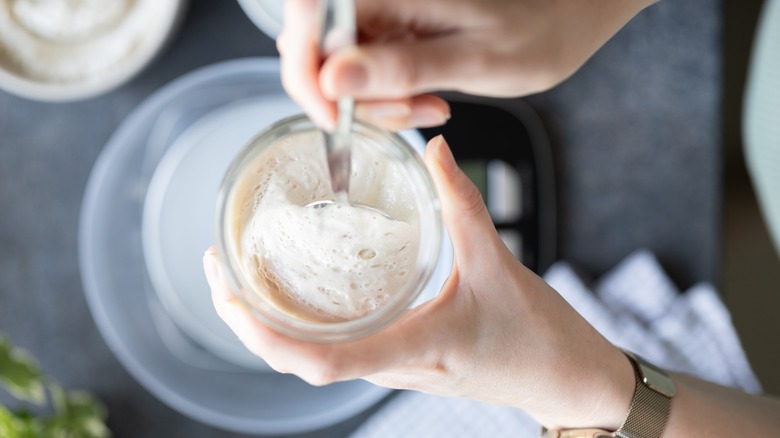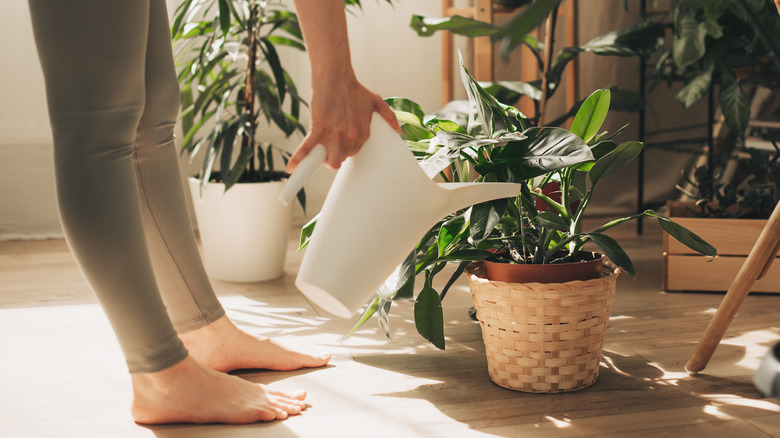Sourdough Starter Is About To Become Your New Favorite Natural Plant Booster
As fall sets in, you are probably ramping up your baking game for the holidays. What better way to create a cozy environment than with the smell of freshly baked sourdough bread? As you admire your jar of treasured sourdough starter, have you ever thought about sharing some with your plants? Probably not — but you should. Thanks to nutritious yeast and lactic acid bacteria (LAB), evidence suggests your leftover sourdough starter can give your plant babies a rise — quickly making it a favorite plant booster. When you hear about lactic acid, you may think about milk or associated digestive issues. Well, this natural component can be just as active in your soil as in your gut, aiding in root and leaf nutrient absorption, yield, soil structure, and disease prevention.
You should routinely discard portions of starter as you feed it flour and water. Instead of wasting that discard, mix it right into your compost pile without adjustments. Alternatively, some plant parents have taken to diluting a small amount of starter discard with water before applying it directly to plants. Simply place the discarded starter in a clean jar. Fill the jar with water, mix well, and pour. Don't go overboard, frequently pouring it over your vegetation, or you'll risk overwhelming young or sensitive buds. Getting it on the plant leaves may also cause leaf burn or stain foliage. Start with only a little sourdough discard mixed into a full jar of water, then gradually adjust the amount you provide your plants as you observe how they respond. Like with other feed or fertilizer, the solution should be applied as needed during the growing season.
How sourdough starter may benefit plants
Sourdough starter is a mixture of bacteria and yeast. Did you know that yeast are also microorganisms? After learning this, you may want to know that diverse soil microorganisms aid plant growth and photosynthesis. However, plant growth results may vary as all sourdough yeast isn't the same — with over 20 variations found so far.
This natural biodiversity includes 50 species of lactic acid bacteria (LAB), according to the Journal Trends in Food Science & Technology. However, regardless of the increased plant yield that LAB stimulates, crops won't last without protection from illness. Luckily, LAB can also synthesize chemicals that inhibit bacteria growth in your soil, shielding against harmful pathogens that can kill your vegetation. It also helps plants enhance their natural immunity from these pathogens. When used in a spray, LAB reduced E.coli growth on spinach, as published in the International Journal of Molecular Sciences. Other produce that benefited from its biocontrol properties include cucumbers, wheat grains, pears, grapes, citrus, strawberries, tomatoes, apples, and maize seeds. However, keep in mind that these results were found using isolated lactic acid bacteria, so take these benefits with a grain of yeast.
While it's not a replacement for fertilizer, careful usage of sourdough starter could provide an organic supplementation to indoor and outdoor plants. From better yield to disease protection, you have reasons to throw some into your soil as opposed to the garbage disposal. As you slowly and carefully add this nutrient boost to your plants, observe how they respond. Over time, they may crave some San Francisco sourdough more than you do.

